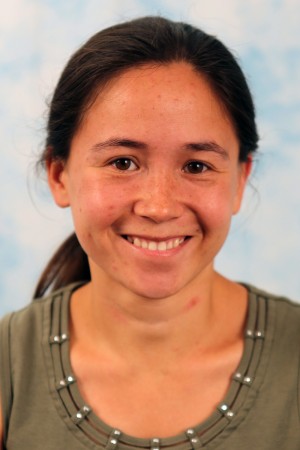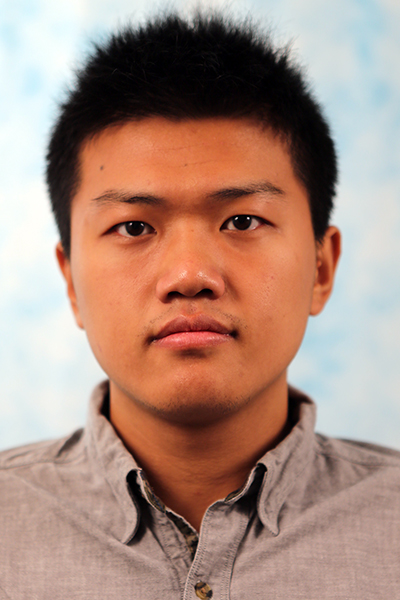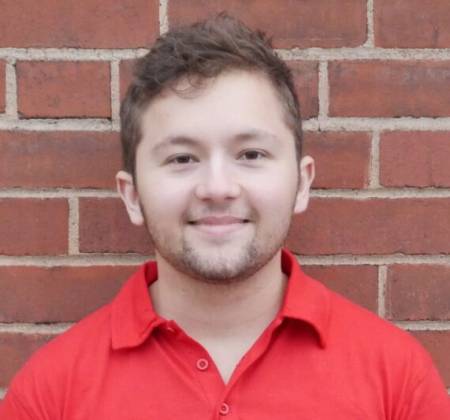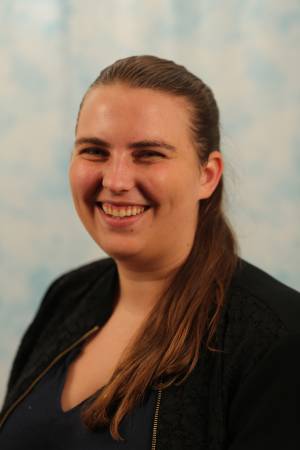PhD Speaking Qualifier
Learning to Compose Hierarchical Object-Centric Controllers for Robotic Manipulation
Abstract: To perform manipulation tasks in the real world, robots need to operate on objects with various shapes, sizes and without access to geometric models. It is often infeasible to train monolithic neural network policies across such large variance in object properties. Towards this generalization challenge, we propose task-axis controllers, which are defined relative to [...]
Causal Reasoning in Simulation for Structure and Transfer Learning of Robot Manipulation Policies
Abstract: Real-world environments, such as homes, hospitals, and restaurants, often contain many objects that a robot could possibly manipulate. However, for a given manipulation task, only a small number of objects and object properties may actually be relevant. This talk presents CREST (Causal Reasoning for Efficient Structure Transfer), our approach to learn the relevant state [...]
Grasping Transparent, Specular, and Deformable Objects
Abstract: A large body of research exists on grasping for objects with ideal properties like Lambertian reflectance and rigidity. On the other hand, real-world environments contain many objects for which such properties do not hold, such as transparent, specular, and deformable objects. For such objects, new approaches are required to achieve the same level of [...]
PoseIt: A Visual-Tactile Dataset of Holding Poses for Grasp Stability Analysis
Abstract: When humans grasp objects in the real world, we often move our arm to hold the object in a different pose where we can use it. In contrast, typical lab settings only study the stability of the grasp immediately after lifting, without any subsequent re-positioning of the arm. However, an object’s stability could vary [...]
Planning to Minimize Human and Robot Efforts Over Tasks
Abstract: It is not feasible to pre-program robots a priori for every possible task they may encounter in unstructured domains. Upon encountering a task that a robot can't solve, one common strategy is to teach it new skills via demonstrations. However, demonstrating a task can often be more cumbersome than performing the task directly. This [...]
Fine-Tuning Offline Reinforcement Learning with Model-Based Policy Optimization
Abstract: In offline reinforcement learning (RL), we attempt to learn a control policy from a fixed dataset of environment interactions. This setting has the potential benefit of allowing us to learn effective policies without needing to collect additional interactive data, which can be expensive or dangerous in real-world systems. However, traditional off-policy RL methods tend [...]
Modeling Coupled Human-Robot Motion for Provable Safety
Abstract: Guide robots that help users who are blind or low vision navigate through crowds and complex environments show promise for improving accessibility in public spaces. These robots must provide real-time safety guarantees for the users, which requires accurate modeling of their behavior in the context of closely coupled human-robot motion. This model must also [...]
Diminished Reality for Close Quarters Robotic Telemanipulation
Abstract: In robot telemanipulation tasks, the robot itself can sometimes occlude a target object from the user's view. We investigate the potential of diminished reality to address this problem. Our method uses an optical see-through head-mounted display to create a diminished reality illusion that the robot is transparent, allowing users to see occluded areas behind [...]
Learning Compositional Radiance Fields of Dynamic Human Heads
Meeting ID: 942 4671 0665 Passcode: jkhzoom Abstract: Photorealistic rendering of dynamic humans is an important capability for telepresence systems. Recently, neural rendering methods have been developed to create high-fidelity models of humans and objects. Some of these methods do not produce results with high-enough fidelity for driveable human models (Neural Volumes) whereas others have [...]
An Experimental Design Perspective on Model-Based Reinforcement Learning
Abstract: In many practical applications of RL, it is expensive to observe state transitions from the environment. For example, in the problem of plasma control for nuclear fusion, computing the next state for a given state-action pair requires querying an expensive transition function which can lead to many hours of computer simulation or dollars of [...]
Learning Model Preconditions for Planning with Multiple Models
Abstract: Different models can provide differing levels of fidelity when a robot is planning. Analytical models are often fast to evaluate but only work in limited ranges of conditions. Meanwhile, physics simulators are effective at modeling complex interactions between objects but are typically more computationally expensive. Learning when to switch between the various models can [...]
Reconstructing common objects to interact with
Abstract: We humans are able to understand 3D shapes of common daily objects and interact with them from a wide range of categories. We understand cups are usually cylinder-like and we can easily predict the shape of one particular cup, both in isolation or even when it is held by a human. We aim to [...]
A causal framework to diagnose and fix issues with doors
Abstract: Many animals, such as ravens, (and a fortiori humans) exhibit a great deal of physical intelligence that allows them to solve complex multi-step physical puzzles. This ability indicates an understanding or a faculty to represent causality and mechanisms, understand when something goes wrong, and figure out how to deal with it. As a step [...]
Designing Whisker Sensors to Detect Multiple Mechanical Stimuli for Robotic Applications
Abstract: Many mammals, such as rats and seals, use their whiskers as versatile mechanical sensors to gain precise information about their surroundings. Whisker-inspired sensors on robotic platforms have shown their potential benefit, improving applications ranging from drone navigation to texture mapping. Despite this, there is a gap between the engineered sensors and many of the [...]
Towards Complex Robot Motions with Reinforcement Learning
Abstract: Reinforcement learning has shown to be a powerful tool for decision-making problems. In this talk, we present the opportunities and challenges of enabling increasingly complex robot behavior with reinforcement learning. First, we present a system that combines reinforcement learning and extrinsic dexterity to solve a novel task of “occluded grasping”. To reach an occluded [...]
Search-based Path Planning for a High Dimensional Manipulator in Cluttered Environments Using Optimization-based Primitives
Abstract: In this work we tackle the path planning problem for a 21-dimensional snake robot-like, navigating a cluttered gas turbine for the purposes of inspection. Heuristic search-based approaches are effective planning strategies for common manipulation domains. However, their performance on high-dimensional systems is heavily reliant on the effectiveness of the action space and the heuristics [...]
Vision-Based Tactile Sensor Design using Physics Based Rendering
Abstract: Tactile sensing has seen a rapid adoption with the advent of vision-based tactile sensors. Vision-based tactile sensors provide high resolution, compact and inexpensive data to perform precise in-hand manipulation and human-robot interaction. However, the simulation of tactile sensors is still a challenge. Simulation is a critical tool in the development of robotic systems. In [...]
Kernel Density Decision Trees
Abstract We propose kernel density decision trees (KDDTs), a novel fuzzy decision tree (FDT) formalism based on kernel density estimation that improves the robustness of decision trees and ensembles and offers additional utility. FDTs mitigate the sensitivity of decision trees to uncertainty by representing uncertainty through fuzzy partitions. However, compared to conventional, crisp decision trees, [...]
Energy-based Joint Pose Estimation for 3D Reconstruction
Abstract: In this talk, I will describe a data-driven method for inferring camera poses given a sparse collection of images of an arbitrary object. This task is a core component of classic geometric pipelines such as structure-from-motion (SFM), and also serves as a vital pre-processing requirement for contemporary neural approaches (e.g. NeRF) to object reconstruction. [...]















